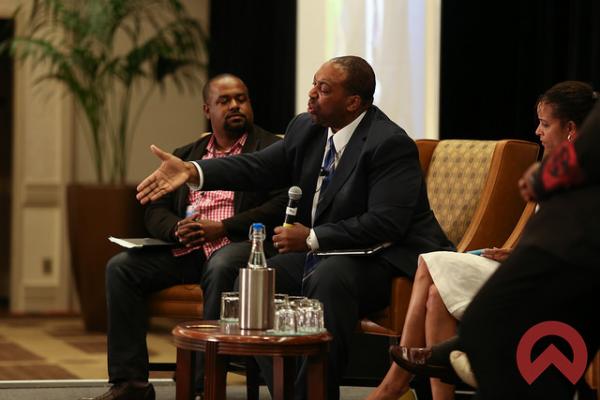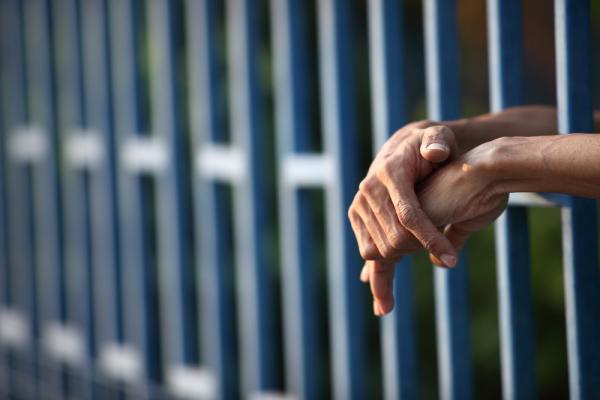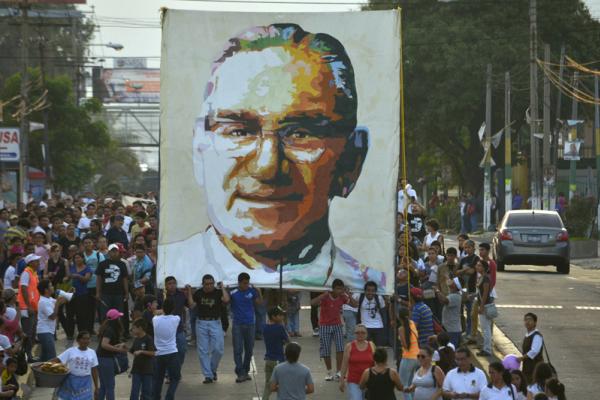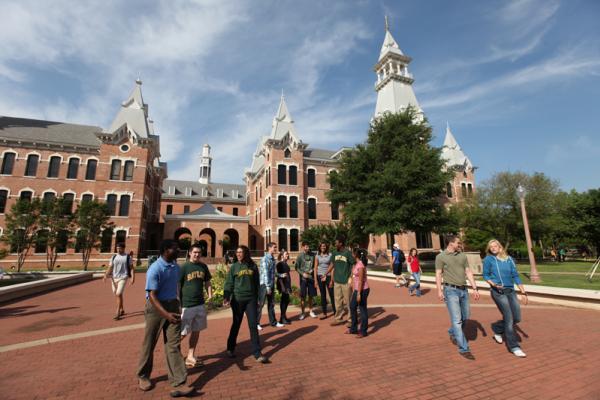For Christians, it’s sometimes hard to admit believing in the supernatural, the legitimacy of miracles, an afterlife, and following an ancient text written thousands of years ago by numerous authors that have been divinely inspired by an all-knowing, all-powerful, and omnipresent God.
At first glance, Christianity seems at odds with an increasingly “secular” culture that views spirituality as old-fashioned and irrelevant, but our society reveals that everything — and everyone — is spiritual on some level.
At first glance, Christianity seems at odds with an increasingly “secular” culture that views spirituality as old-fashioned and irrelevant, but our society reveals that everything — and everyone — is spiritual on some level.
1. The Religion of Sport
Few people pray more fervently, earnestly, and passionately than when their favorite sports teams — and athletes — are competing.
With arms outstretched, they wildly clap, cheer, chant, cry, and scream at the top of their lungs. Wearing costumes, jerseys, and following
At Sojourners, our interns have the chance to meaningfully put their faith into action for social justice. Placed in entry-level positions throughout the office, interns are given significant responsibilities that range from writing for the blog to managing relationships with donors to collaborating on mobilizing initiatives.These full-time jobs are combined with mentorships that help connect each intern’s professional development with their vocational discernment.
It looks like the death penalty may be on life support.
January was set to be the deadliest month for U.S. executions in 2015, but nine of the 15 executions were stopped. In an unprecedented wave, three of the deadliest states stopped executions planned for last month — Texas, Oklahoma, and Missouri. February has just begun, but nine of its 12 scheduled executions have been halted.
Last year was not a good year for the death penalty, either, as death sentences hit a 40-year low and executions were at a 20-year low.
There were botched executions such as that of Clayton Lockett, who writhed in pain for 43 minutes before dying of a heart attack, with the Oklahoma prison warden calling it “a bloody mess.”
Then there were the exonerations, such as that of Ricky Jackson in Ohio, who spent 39 years in prison for a crime he didn’t commit, convicted solely on the testimony of a 12-year-old boy who recanted.
I am in over my heart on the LGBTQ situation and the church. I am also in over my head. As a Christian ethicist who believes Scripture is the measure for matters of faith, doctrine, and conduct, I have to say my head hurts to the point that it aches. It aches because I know that how evangelicals have taught me about loving LGBTQ Christians is myopic, and we need to think through many questions anew.
There are themes I am clear on: the place of love, the importance of family, the image of God, the mystery of bodies, the centrality of children. When it comes to faith, doctrine, and conduct, I plan to occupy myself for a long time on these themes to engage the questions that I am still unclear on. These include: What is the ideal marriage? Who is deemed family? What kind of sex reflects the character of God?
A few years ago, my then 7-year-old son was flipping through a children’s Bible during church when he came to a picture of Jacob and Rachel. He looked up at me and challenged, “What’s this? One wife? Where are the rest of them?”
Clearly the illustrator had an interpretive lens for choosing not to portray the messiness of the patriarch’s family and children. Our world simplifies and sanitizes marriage and sex to the point that we evangelicals endanger the kind of complex thinking on family structures that Scripture itself narrates.
Fortunately I am in a church where questioning over your head is okay. Formed by people who first called themselves Mission Friends, the Evangelical Covenant Church (ECC) was birthed as a renewal movement in the late 1800s. We affirm our freedom in Christ to breathe life into our faith and ground our wisdom in the midst of complex ethical questions. The New Testament’s word on freedom sets the tone. John’s gospel tells us that if we continue going back to the word, we are his disciples. Those who receive Christ and have faith in his name are free to become children of God (John 1:12). Paul emphasizes that those who love Christ are new creations (2 Cor. 5:17). Galatians reminds us that freedom to live a new life is evidenced by such fruits as love, joy, peace, patience, kindness, goodness, faithfulness, gentleness, and self-control (Gal. 5:16-25). The letter to the Philippians promises that what God has begun will eventually be completed (Phil. 1:6).
In the midst of this celebrated freedom, the ECC acknowledges that it is a fragile gift. One of our forebears called this gift of freedom in Christ a “turtle without a shell” — how free it is to live unencumbered, yet how vulnerable to lose one’s protective layer. While I don’t want to say we Covenant evangelicals always use our freedom well, we do have historical precedent for thinking in morally complex ways.
Pope Francis on Feb. 3 officially declared that Archbishop Oscar Romero, assassinated by a right-wing death squad in 1980 while celebrating Mass in El Salvador, was a martyr for the faith, clearing the way for his beatification.
The move ends decades of fierce debate over Romero’s legacy, but it was not a complete surprise: Francis, the first Latin American pope, has often said he thought Romero was a martyr worthy of consideration for sainthood.
But his view contrasts with the conservative papacies of John Paul II and Benedict XVI, which viewed Romero as an icon of the theological left who was killed for political reasons because he spoke out against poverty and human rights abuses.
As a result, Romero’s cause for canonization languished in the Vatican’s bureaucratic limbo despite his great popularity elsewhere.
That is set to change. the Feb. 3 declaration by Francis stated that Romero was “killed in hatred of the faith.” On Feb. 4, the Vatican is scheduled to hold a news conference with Archbishop Vincenzo Paglia, a Vatican official who is promoting Romero’s cause for canonization.
Gov. Chris Christie created a stir during a trade trip to London this week when he defended parents’ right to decide whether their children should get mandated vaccines — remarks that a spokesman quickly clarified by saying the governor “believes vaccines are an important public health protection.”
Back home in New Jersey, where Christie’s health commissioner has been a vocal advocate for vaccinations, parents already have the right to make those decisions if they put in writing that accepting vaccines violates their religious beliefs.
In the 2013-14 school year, nearly 9,000 New Jersey children used a religious exemption to decline immunizations that under state law children must receive in order to attend school. The largest number of exemptions were sought in Hunterdon, Monmouth, Warren, and Sussex counties, according to state education department data.
A parent need only submit a signed statement indicating “immunization interferes with the free exercise of the pupil’s religious rights,” according to the health department website.
Parents do not need to produce a letter from a clergy member or cite religious doctrine.
Should religious colleges be bound by the same union and labor rules as secular universities? Or be rated by the same criteria?
Those questions and more will be tackled by the presidents of three major universities who say they are united in supporting the values that faith-based schools bring to higher education even as they grapple with government regulations that can challenge them.
For the first time, the top officials of Baylor University, Catholic University of America and Yeshiva University will lead a discussion Feb. 4 in Washington on the “calling” of faith-based universities.
Baylor University President Ken Starr said faith-related schools are charged with helping students learn about “living life purposefully,” which he said goes beyond simply helping students get jobs and be productive citizens.
“That’s very good, but is that enough?” said Starr, who leads the world’s largest Baptist university, in Waco, Texas. “We want to take the conversation to a broader level of what is in fact the education enterprise all about at its very best, at least from our perspective.”
All three leaders see challenges to the religious freedom of their institutions from the U.S. government.
Are you looking for a chance to explore your vocational calling and expand your ideas of spirituality, justice, and community, all while serving the mission of Sojourners? Apply for our 2015-2016 internship program!
This yearlong fellowship combines full-time jobs and vocational mentorship in our nonprofit office with an opportunity to live in intentional Christian community. The program is open to anyone 21 years or older who is single or married without dependents.
Go behind on the scenes on what it's like to live in community in this video, part of a series on life as a Sojourners intern. Sharing a house in Washington D.C., interns worship, share meals, manage a common budget, pray together, and hold weekly educational seminars.
I’ve always cringed when I hear someone say, “Love the sinner but hate the sin.”
In the end, I don’t quite know how to do that. I get the sentiment, and I think it basically comes from a well-intentioned place. Essentially, when someone says this, I think they’re trying to be kind and caring for the person above and beyond any kind of vice or sinful deeds that person has committed. You know: Man, I really love Steve but I hate his alcohol addiction. Deborah is a wonderful friend but her tendency to gossip is really not so wonderful. James has a heart of gold but I just can’t condone his adultery.
We love and affirm people but we don’t affirm the things they do that hurt themselves, others, or are an affront to God’s dream for them and their God-given potential.
But sin is not just the things we do (or do not do — there are both sins of commission and omission). Sin is something we can’t quite shake. While we’re first created good, as Desmond Tutu has reminded us, we certainly fall short (always be sure to remember Genesis 1:31 as the first word and Genesis 3 as the second).
Sin is a reality of our brokenness this side of Jesus’s return and that fully realized realm of God where there will be shalom and no one will hunger or cry anymore. Sin isn’t the way it’s supposed to be. So many want to make it out to be a laundry list of "don’ts" along life’s way — our faith, in the end, teaches us that it’s so much more than that.
I reject the whole notion of love the sinner but hate the sin — it misses the Gospel point that we are more than our inadequacies or things that we’ve done or not done that have missed the mark. We are better than our sin — we are created in the beautiful image of God.








